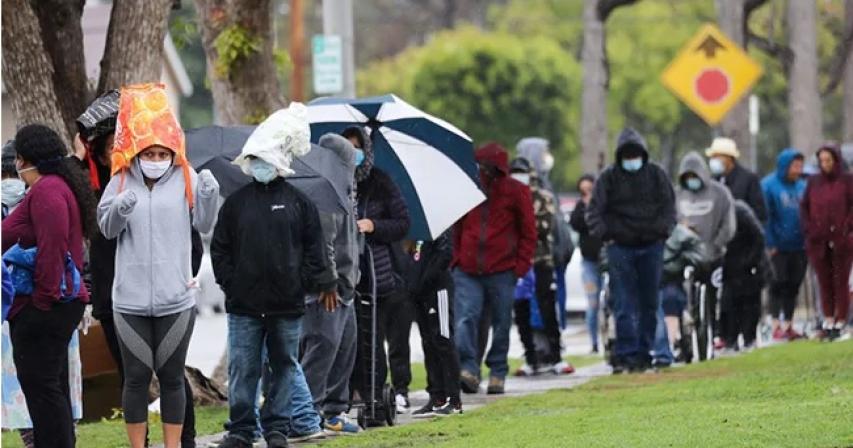Hungry, Unemployed Americans Line Up At Food Banks Amid Coronavirus Pandemic

American families slammed by the coronavirus pandemic are turning more and more to food banks to get by, waiting hours for donations in lines of cars stretching as far as the eye can see.
And with 22 million people out of work seemingly overnight as business after business closes under the Great Lockdown, these charities feeding hungry and scared people fear the day will come when they cannot cope with the tsunami of demand.
On Tuesday, for instance, some 1,000 cars lined up at a distribution center set up in Pennsylvania by the Greater Pittsburgh Community Food Bank. Demand for its bags of food soared nearly 40 percent in March.
At eight centers like that one, some 227 tonnes of food were placed in the trunks of cars of families suddenly unable to put meals on the table, said the organization's vice president Brian Gulish.
"A lot of people are utilizing our service for the first time. They've never turned to a food bank before," said Gulish. So they do not know there is a network of 350 distribution points in southwest Pennsylvania.
"That's why those lines are so long. Because they don't know that network that we have," Mr Gulish added.
All over America, from New Orleans to Detroit, people abruptly stripped of a paycheck are flocking to food banks -- sad scenes of desperation among people waiting for their small share of stimulus money included in the $2.2 trillion emergency relief package approved by Congress last month.
Perhaps the most dramatic picture of some Americans' new food insecurity unfolded April 9 in San Antonio, Texas, where a staggering 10,000 cars showed up at one food bank, with some families arriving the night before to just sit and wait.
"We have gone for months without work," a woman who gave her name only as Alana said at a food distribution center in Chelsea in suburban Boston.
"I find a lady yesterday with a 15-day-old baby, a newborn. The husband is not working, she has two more kids. She was having no food in her house," said Alana.
Everywhere, food bank officials say their needs in the pandemic era have skyrocketed all of a sudden -- by 30 percent, for example, at a network in Akron, Ohio.
"We built a supply chain over the years that would serve a certain anticipated need for food. Ramping that up 30 percent overnight is nearly impossible," said Dan Flowers, CEO of the Akron-Canton Regional Foodbank.
In part this is because the food banks are caught up in the maelstrom that has hit the US food industry.






Comments